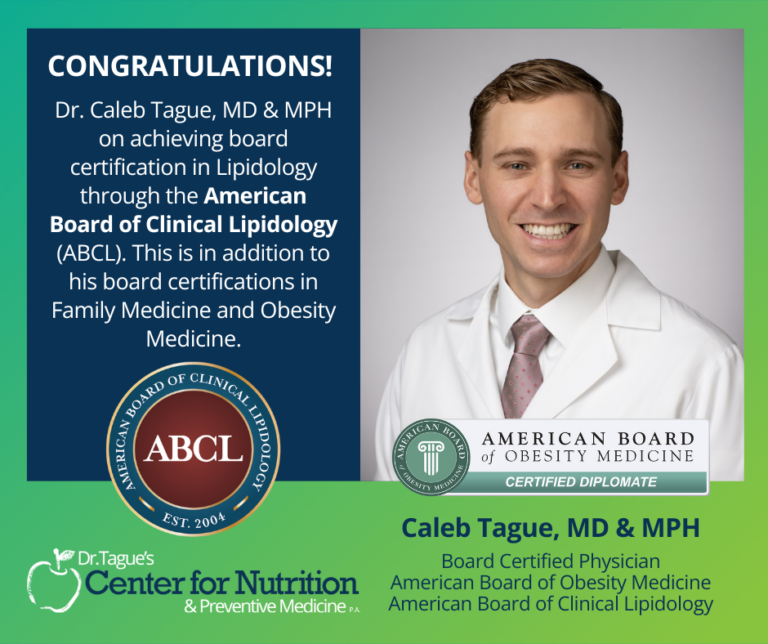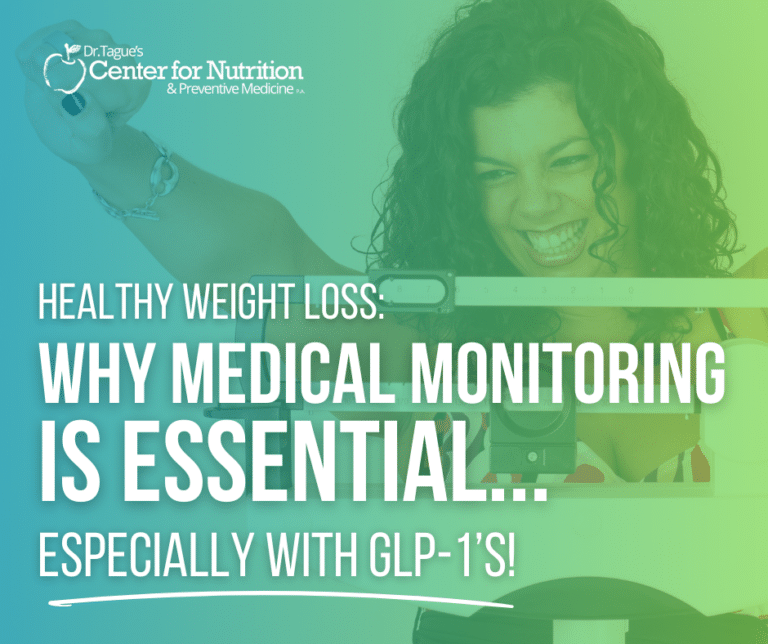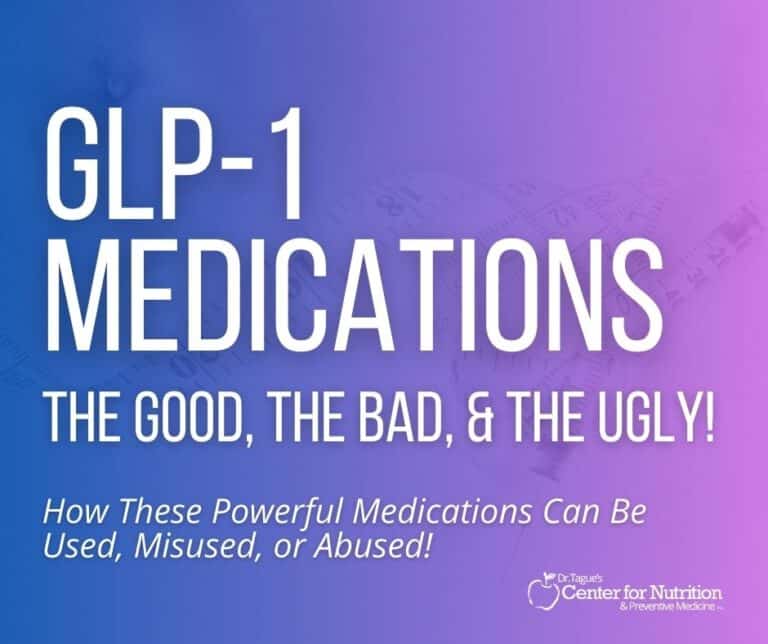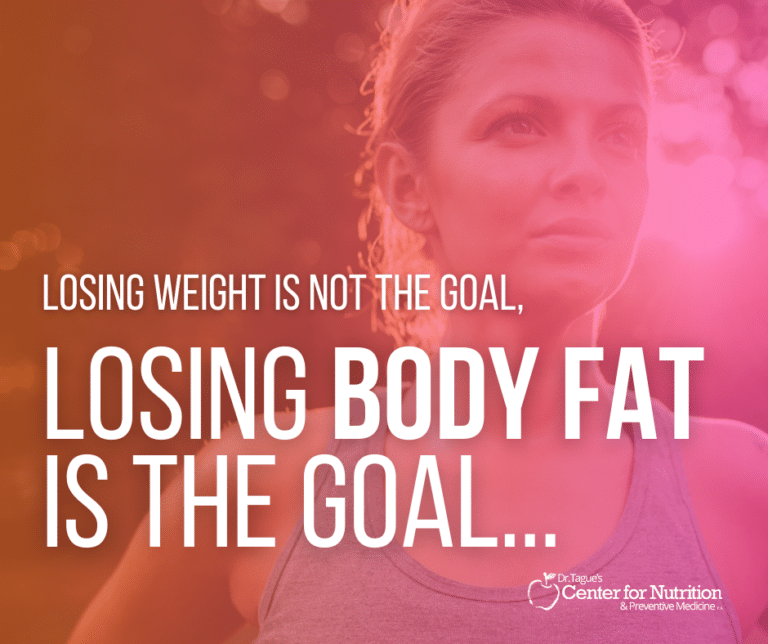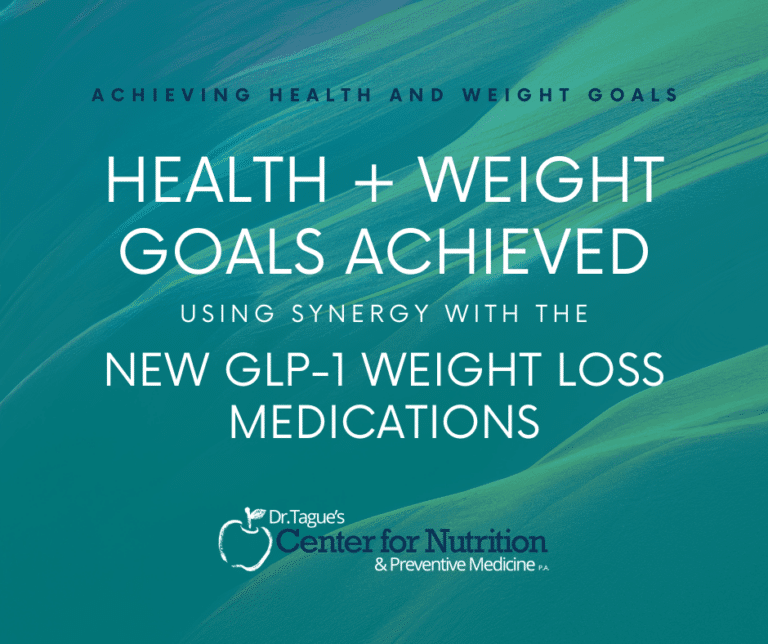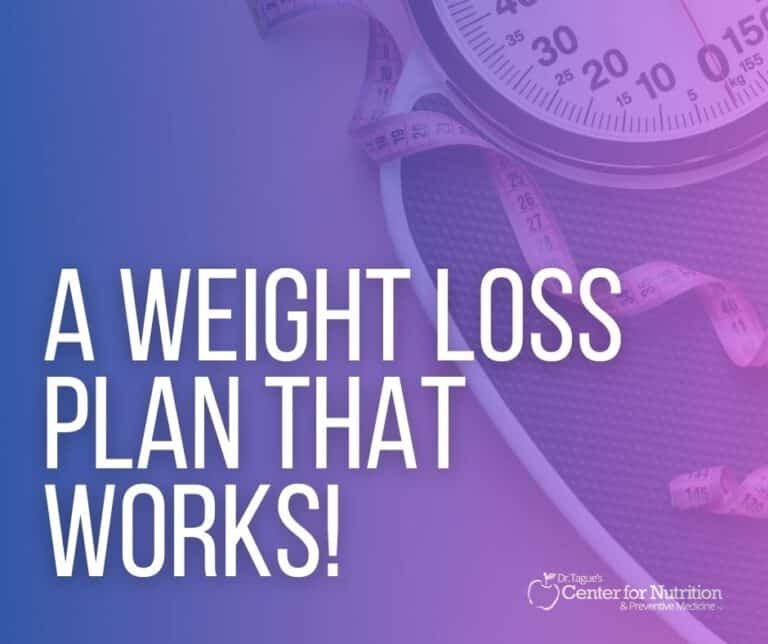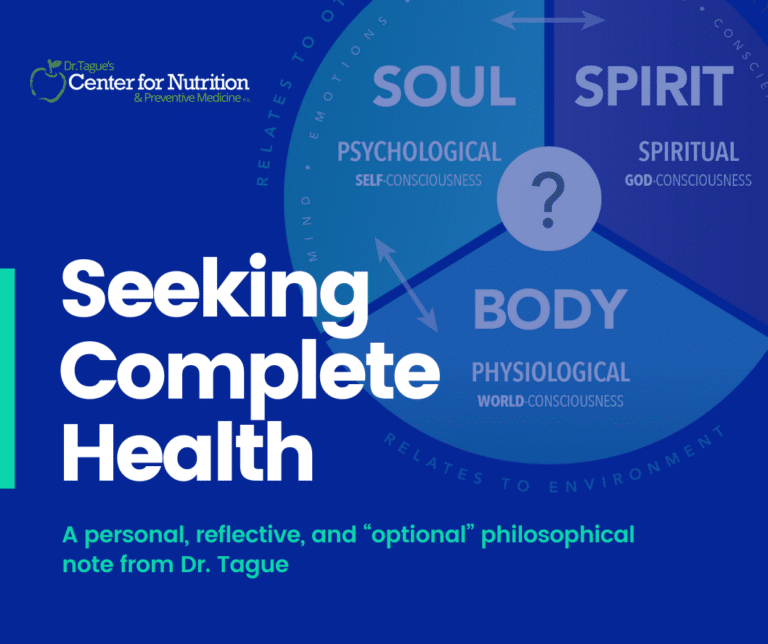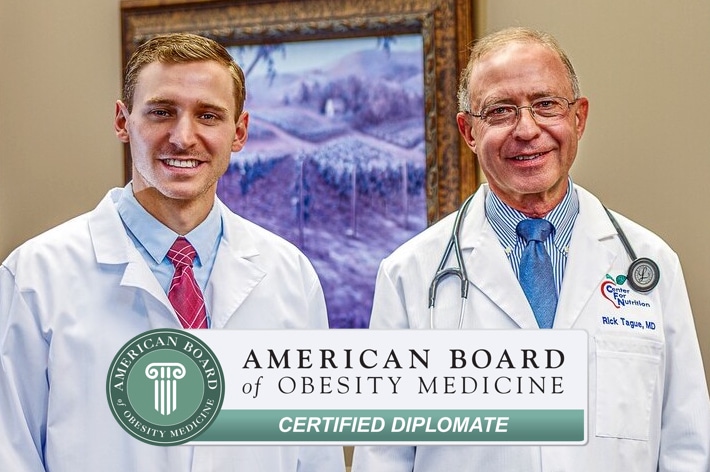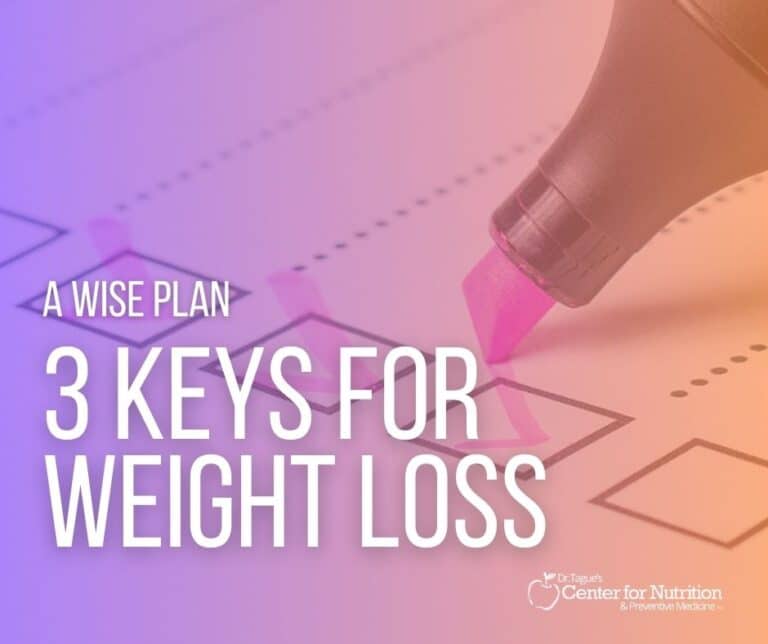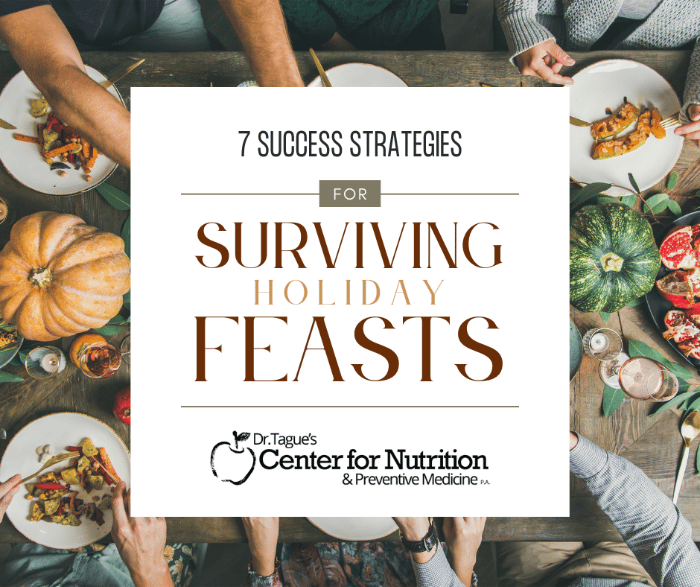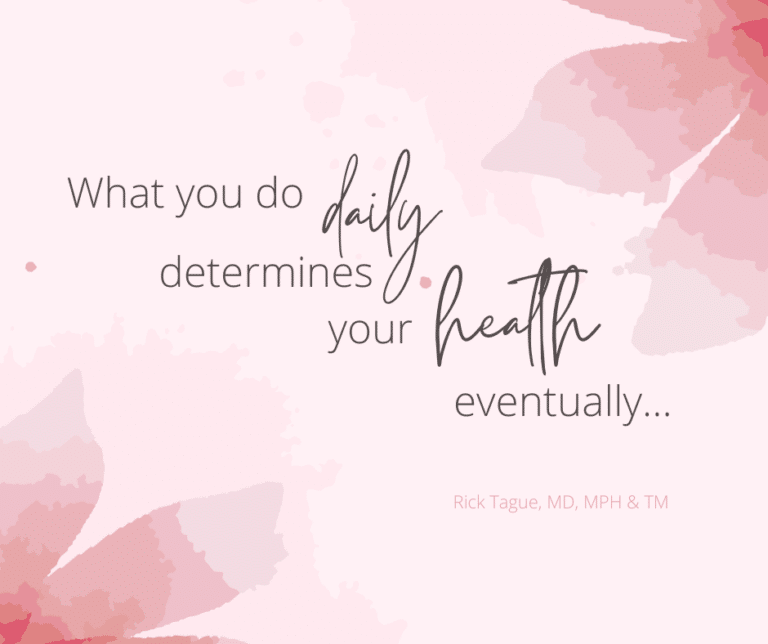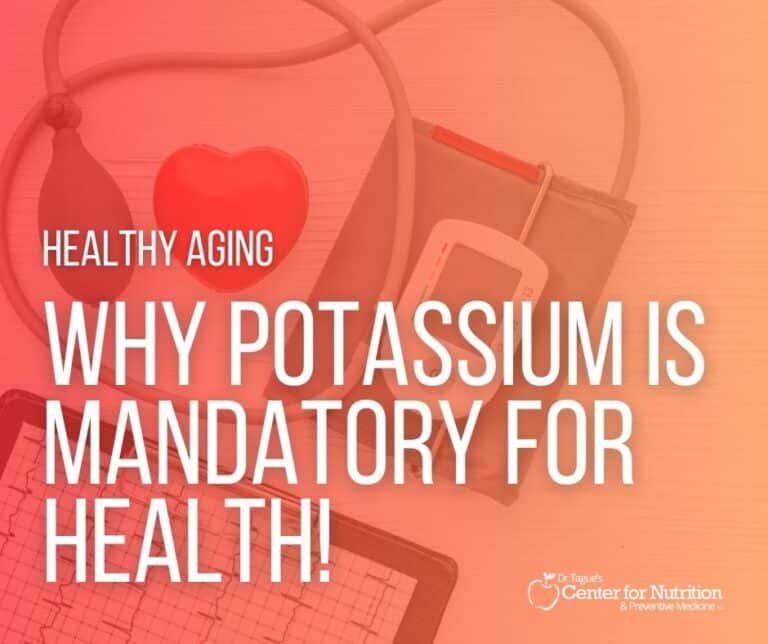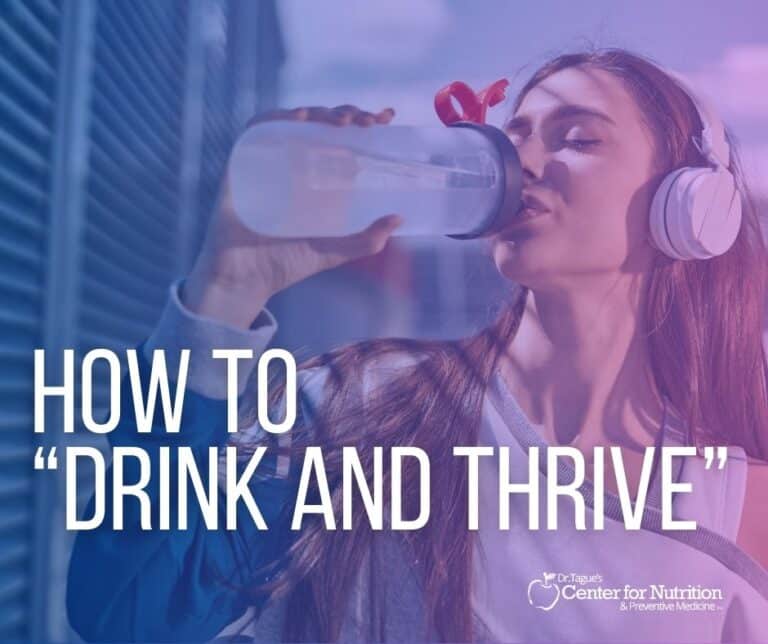Kansas City & Topeka: If you're in your 40s, 50s, 60s or beyond and feel like your body is working against you—gaining weight, feeling drained, or losing motivation—you're not alone. And you're not just "getting older." Often, these changes are signs of real, treatable medical conditions. Loss of hormones, slower metabolism, insulin resistance, and nutrient deficiencies can ... Continue
Dr. Caleb Tague Achieves Board Certification in Lipidology: Advancing Heart Health & Prevention at the Center for Nutrition
Please join us in congratulating Caleb Tague, M.D. & M.P.H. on achieving board certification in Lipidology through the American Board of Clinical Lipidology! 🩺🎓 Already board certified in Family Medicine and Obesity Medicine, Dr. Caleb now joins a distinguished group—just a few Kansas physicians—with this advanced certification in lipid management. This includes ... Continue
Medical Monitoring is Essential for Healthy Weight Loss… Especially with GLP-1’s!
At Dr. Tague’s Center for Nutrition clinics in Topeka and Leawood, our mission has always been to help you not only lose weight, but optimize your health and preserve your strength and vitality for the LONG TERM! That’s why we want to emphasize something critical for everyone pursuing weight loss — especially those using powerful treatments like GLP-1 medications (including ... Continue
FDA to Halt Compounded Semaglutide: What You Need to Know
If you have been using compounded Semaglutide for weight loss, it’s important to be aware of a recent FDA ruling that will prohibit pharmacies from compounding and distributing Semaglutide after April 22, 2025. (This change means that compounded versions of Semaglutide, often used as a more affordable alternative to Ozempic and Wegovy, will no longer be an option.) NOTE: The ... Continue
GLP-1 Medications: The Good, The Bad, & The Ugly!
How these powerful medications can be used, misused, or abused! By Rick Tague, M.D., M.P.H. & T.M. YES, WE ARE NOW USING THE NEW, POWERFUL, GLP-1 MEDICATIONS. They are available and affordable!!! Weight loss has never been more in the news! The world is finally acknowledging that we have an overweight problem. But is the ultimate solution truly the new pharmaceutical ... Continue
Fat Cells: Battleground for Unwanted Weight Gain!
Our bodies are made of cells. Muscle cells make up muscles, brain cells make up our brain, and fat cells (known as adipocytes) make up fat – and without ABNORMAL fat cells, unwanted weight gain cannot occur! Controlling our fat cells is critical to staying trim and fit. The fat cell is the battleground for unwanted weight gain. And to understand successful weight loss, ... Continue
Health and Weight Goals Finally Achieved Using Synergy with the NEW, GLP-1 Medications
Adding New Medications (in low doses) to Proven Center for Nutrition Protocols is a Strategy for Success! Note: Read on to learn more about the new weight loss medications nicknamed “Glip 1’s”, technically known as GLP-1 Receptor Agonists, with names including Semaglutide, Ozempic, and Wegovy... And, with multiple classes of medications available, affordability has never been ... Continue
Are You Aging Too Fast?
Slow down your biological clock by protecting your “telomeres” with these powerful strategies… Aging…. It’s happening to all of us, but did you know that most Americans are aging “too fast”? You see, researchers now know more than ever how to measure aging where it actually happens, at the level of our DNA. And for Americans, the news isn’t good. Americans are aging faster ... Continue
Trim, Fit, & Healthy… It’s Never Been More Important!
Has your scale steadily increased in recent months? You’re not alone. Gaining weight over the last few years has been all too common, causing major setbacks to health and happiness. With fewer social activities, fewer vacations, gyms shutting down, and unprecedented stress, there has been a lot of comfort eating of unhealthy foods! Consequences were inevitable. With recent ... Continue
Finally… A Weight Loss Plan that Works!
I overheard a revealing father-to-son comment while eating out. A family of 3 was seated at the table right next to me. Sadly, both parents were overweight by 40+ pounds, as was the 20 year old son. The father, speaking wisdom, commented, “Son, be very careful to protect your health, or you will end up with problems. Look at me…” ... Continue
Body, Soul and Spirit: Seeking Complete Health
A personal, reflective, and “optional” philosophical note from Dr. Tague Humans are complex beings. And that is an understatement! What is it that makes us who we are? Are we just a bag of skin containing chemicals and chemical reactions? Or, is there an immaterial, “can’t touch it” aspect to man that makes us unique as individuals? And could the immaterial part of man ... Continue
American Board of Obesity Medicine Certified Diplomates
Obesity is the most prevalent chronic disease in our society. Yet, many physicians are not trained in how to manage it. The American Board of Obesity Medicine certifies physicians looking to bridge this gap. The American Board of Obesity Medicine (ABOM) serves the public and the field of obesity medicine by maintaining standards for assessment and credentialing physicians. ... Continue
Dr. Tague’s Center for Nutrition Celebrates 25 Years!
We’re thrilled to be featured in the January 2022 issue of Topeka City Lifestyle! Check out the article, Obtaining Optimum Health, about Dr. Tague and The Center For Nutrition below: Obtaining Optimum Health Dr. Tague’s Center for Nutrition Celebrates 25 Years! Originally published in the January 2022 issue of Topeka City Lifestyle Magazine With 25 years of ... Continue
A Wise Plan: 3 Keys for Weight Loss
Is your scale “creeping” upwards? You’re not alone. Unwanted weight gain is epidemic and is often devastating to health and happiness. 80% of Americans are now overweight, with more people joining the list each year. Calories from food end up as fat (what we DON’T want), instead of energy (what we DO want). Calories have become a “bad guy”! Look at common efforts to avoid ... Continue
Surviving Holiday Feasts!
The holidays are here! What a great season! We each have much to be thankful for, and it is always a blessing to give gifts and host friends and family members for memorable and fun feasts and gatherings! Unfortunately, the holidays typically involve less than ideal foods. If not careful, we can easily gain 5-10 pounds of unwanted weight gain between October 31st and January ... Continue
Getting Unstuck!
Time and again people have come to me to get “unstuck” from wrong routines that have resulted in health and weight problems that were never intended and never wanted. They literally had become “stuck” in a pattern of ongoing fatigue, weight gain, wrong foods, wrong routines, and deteriorating health! I promise... you can do better! ... Continue
Healthy Habits: What you do daily determines your health eventually…
One of four deadly diseases will likely kill everyone reading this. I call these diseases the “Deadly 4”, and they take the lives of most Americans. Yet these diseases are mostly PREVENTABLE! The “Deadly 4” Diseases are: Heart Disease Cancer Brain Disease: Stroke and Alzheimer’s Diabetes Type 2 ... Continue
Bones, Stones, and Blood Pressure: Why Potassium is MANDATORY for Health!
Vitamins AND Minerals in optimal amounts are essential for Optimum Health. If your goal is excellent health, pay attention to Potassium. Inadequate potassium can lead to irregular heart beats, muscle weakness, high blood sugars, high blood pressure, kidney stones, thinning bones, and an increased risk of heart attack and stroke. Got your attention? Potassium ... Continue
Excessive Weight Gain: Why does it happen?
Have you ever met anyone who wanted to gain an excessive, unhealthy amount of weight? Of course not! No one wants to be overweight! Research says that many people would choose blindness over obesity. Others would choose to lose an arm or leg rather than suffer the emotional and physical pain of obesity. So why does weight gain happen? It’s just not “logical” and it ... Continue
How to “Drink and Thrive”
Drinking... we do it all the time. But are you getting the maximum health benefits from every sip? Choosing proper beverages makes a huge impact on weight and health over time. Wrong choices are devastating to weight control and health. Right choices are life giving. ... Continue

